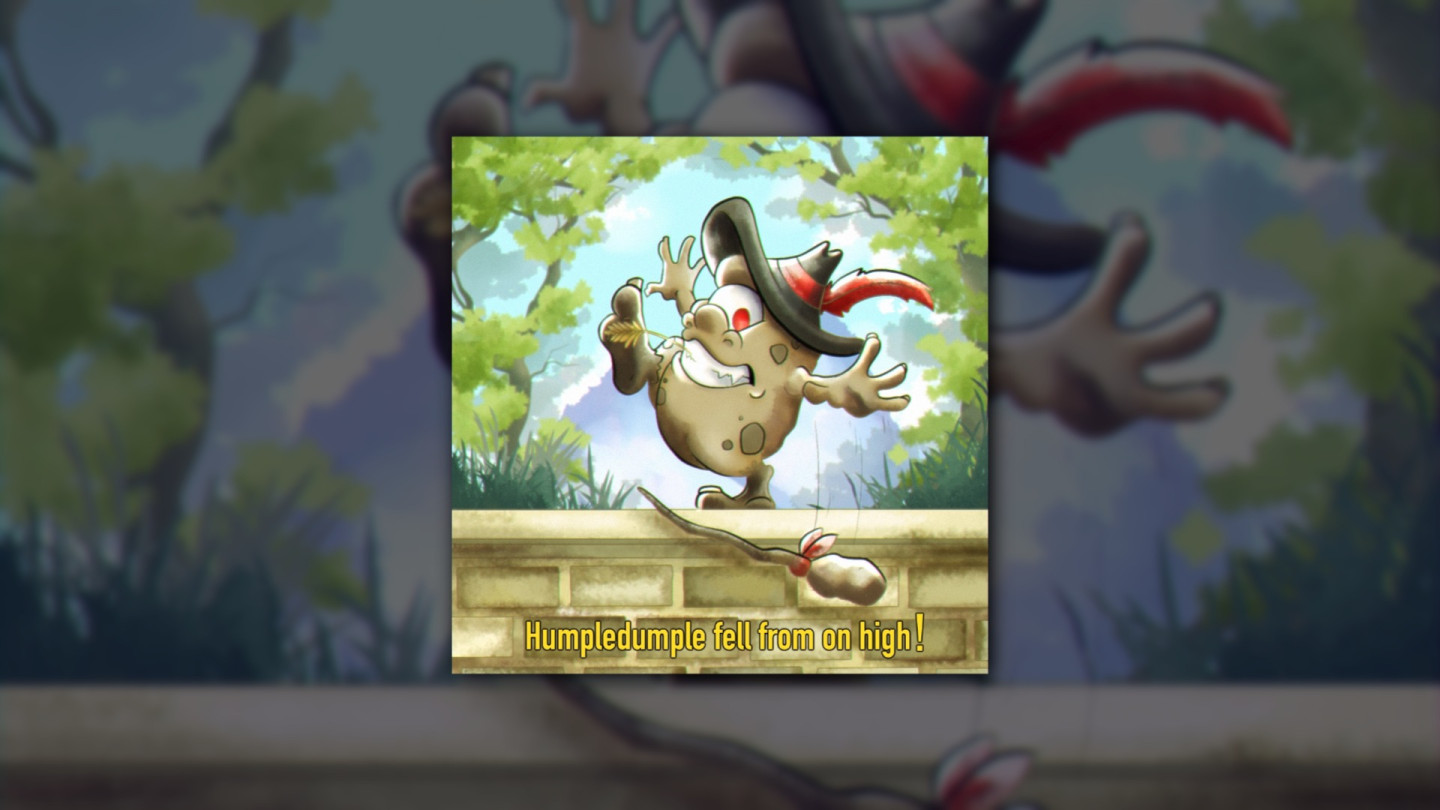From the Archives
22: Humpledumple: The Rhyme
Many casters spend their time researching where cryptids come from—what brings them into the public eye in the first place, what makes them willing to be seen at all, and so forth.
But sometimes casters reverse-reveal where cryptids have an impact on other parts of our world in ways that non-casters might never recognize.
I reserve judgment on this particular origin story. Much as the Black Death was liberally applied to interpret the children’s song “Ring Around the Rosie,” so too might the Humpledumple rhyme be a stretch. But as Bloody Mary once screamed at me regarding my dismissal of “Ring Around the Rosie,” WHAT WOULD YOU KNOW ABOUT THE BLACK DEATH? I WAS THERE, YOU KNOW!
So, use your own judgment regarding the Humpledumple.
Only 980 tales to go.
Contrary to everything you might think, Humpty Dumpty was not an egg.
The original rhyme, first published in 1797, offers no description of the eponymous character; in fact, some later versions depicted Humpty Dumpty as an overweight, obstinate boy who was ultimately in need of medical attention. That initial rhyme was actually a riddle, the solution to which was “an egg,” of course, as no one, not even royalty, can reconstruct an egg once it is broken.
But other, mostly unnoticed documents indicate a much odder history for the rhyme.
An unusual German cryptid was the actual source of a version of the rhyme that predates the 1797 publication; it contained three verses instead of one, and it originated from a tale spread by a German Herzog, or duke, allegedly from the duchy of Holstein-Fulcher. The duchy was struck with widespread cases of dysentery in 1750, and Herzog Wilhelm initially blamed his own exposure to the illness on unwashed potatoes served to his entire family. However, his blame shifted a year later, possibly due to the lingering effects of fever caused by the dysentery.
According to Holstein-Fulcher documents dated 1751, Wilhelm told his five children about a giant one-eyed potato named Humpledumple who, after a recent and unfortunate accident, cursed the Herzog’s personal guards, who “tried to help the potato man the only way they knew how.”
Humpledumple, Wilhelm declared, wasn’t actually injured “but brought great shame on my innocent guards,” particularly his captain, Hauptmann Martin. The potato man cryptid then proceeded to curse the Leibeigene (“serfs”) who brought potatoes to the duke’s castle and the Köche (“cooks”) preparing the family’s meals.
Martin, Wilhelm said, searched the entire duchy for Humpledumple after their unfortunate encounter, hoping to convince the potato man to undo his curse, but Martin never found the cryptid again. Instead, the Hauptmann was said to be violently ill with dysentery in every single village all across Holstein-Fulcher. From the waste resulting from his illness, the legend says, potatoes grew in abundance.
Despite Humpledumple being described in all other literature as a pleasant giant walking potato, the Herzog of Holstein-Fulcher recorded his displeasure with—and distaste for—Humpledumple frequently for the remaining twenty-eight years of his life.
“My duchy is now overrun with Kartoffelfelder (potato fields),” Wilhelm wrote in 1762. “This is the fault of my Hauptmann for travelling while sick, for he expanded the potato man’s revenge. Everywhere that Martin went, that yam was sure to go.”
While this particular sentiment may have resulted in another nursery rhyme, that is research for another time. Instead, published here for the first time is the poem researchers believe preceded the more familiar Humpty Dumpty rhyme.
Humpledumple fell from on high
Humpledumple had a good cry
All the duke’s forces proclaimed it was fatal
While shamelessly tasting the fallen potato
Humpledumple eaten with chives
Humpledumple gave the men hives
It came out their mouths, it came out their pants
They humpled and dumpled all over the lands
Humpledumple smashed, mashed, boiled
Humpledumple can make you soiled
So if you don’t help, this lesson you’ll know
Eat this potato, you’ll weep “po-taut-OOH!”

